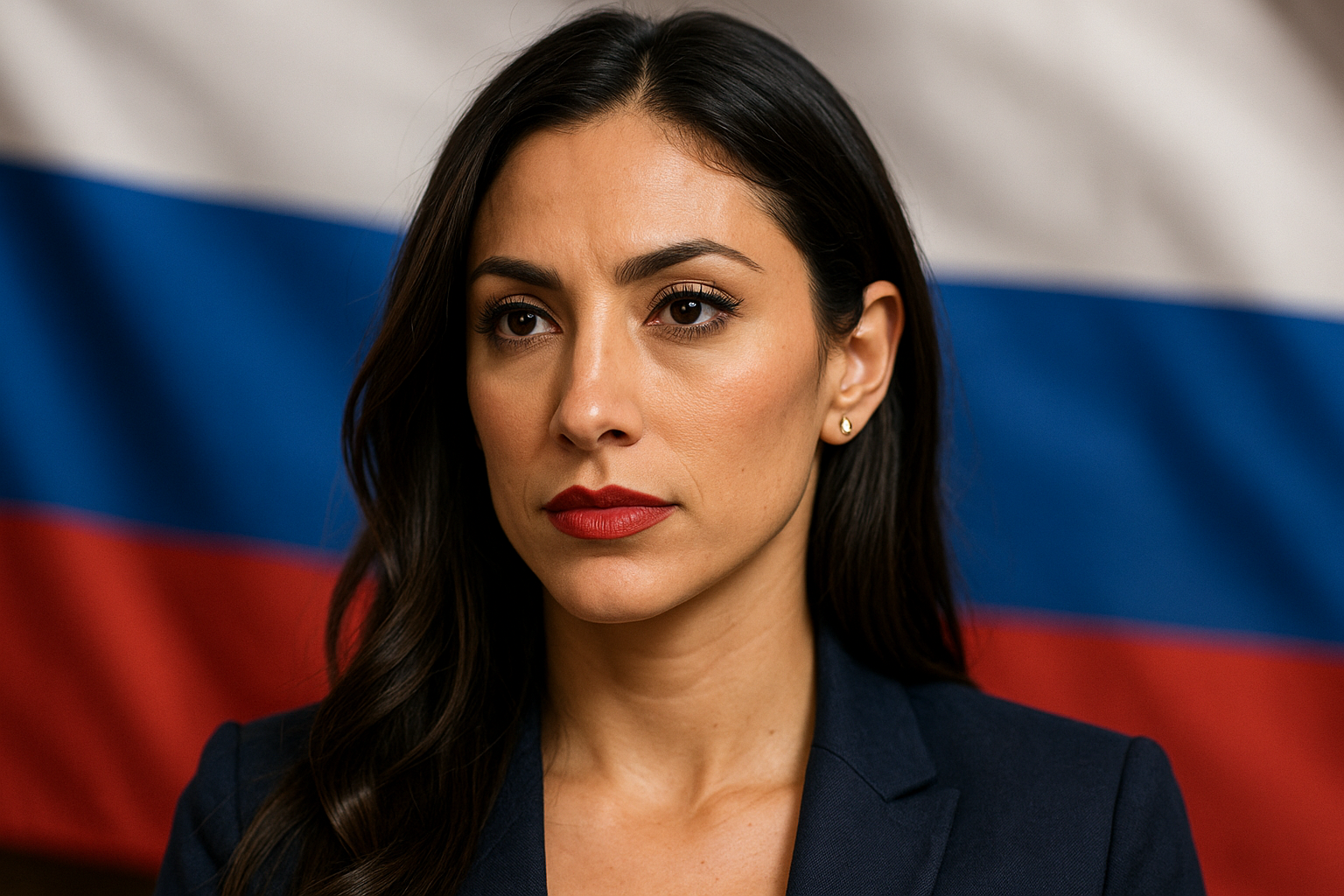Anna Paulina Luna: The Latina Congresswoman Captivating Russian Media
Republican Congresswoman Anna Paulina Luna has become an unexpected sensation in Russian media, sparking both intrigue and concern in Washington. Her rise to prominence in Russian political discourse raises questions about the future of US-Russia relations and the power of personal diplomacy in the digital age.

Congresswoman Anna Paulina Luna speaking at Capitol Hill, capturing attention across international media
A Rising Star in US-Russia Relations
Washington DC - With her direct gaze, sharp discourse, and Southern charm that's winning hearts even in Moscow, Republican Congresswoman Anna Paulina Luna has unexpectedly become the new media sensation in Russian political circles, raising both intrigue and concern about the implications for US-Russia diplomacy.
The phenomenon began with a viral moment: former FSB agent Andrei Lugovoy, previously accused by London in the Litvinenko poisoning case, delivered an unexpected praise of Luna. His call for "a return to common sense between great powers" sent social media metrics soaring on both Telegram and X, while his admiration for the conservative, Russia-friendly Luna sparked widespread interest.
From Congressional Representative to Russian Media Icon
In Florida, Luna is recognized for her straightforward style and unapologetic patriotism. However, her reception in Russia has taken on a different dimension: state media portrays her as the feminine face of "authentic American conservatism," positioning her as a counterpoint to what they term Washington's liberal chaos.
Pro-Kremlin channels regularly feature her anti-Biden statements, while Russian political influencers have begun referring to her as "the American Putin could invite to dinner." Within hours, Russian internet users dubbed her "the Latina of Peace," a nickname that has stuck and spread rapidly across social media platforms.
The Geopolitical Implications of Cultural Diplomacy
What might appear as a simple case of reversed soft power reveals a sophisticated strategy: transforming an American political figure into a symbol of potential US-Russia dialogue. Luna's multicultural background and carefully crafted communication style make her an ideal vehicle for the "post-Trump" narrative that some in Moscow seek to construct.
A Dubai-based political analyst observes: "The Russians aren't looking for adversaries anymore - they're seeking faces compatible with their narrative. Luna perfectly fits this prototype."
From Capitol Hill to Kremlin Headlines
The hashtags #RussianPeace and #LunaForPeace have gained significant traction across Russian social media platforms. Some Russian internet users have gone as far as creating elaborate montages featuring Luna, combining romantic and patriotic themes: crossed flags, intense gazes, and slogans about "peace between free nations."
Democratic strategists in Washington view this development with growing concern. Beyond the surface-level fascination lies a deeper issue: the credibility of American political information is at stake. Every tweet, smile, and statement becomes fodder for geopolitical interpretation.
Building Bridges or Creating Mirages?
While Luna has never explicitly advocated for an alliance with Moscow, she has occasionally hinted at the possibility of improved relations. In today's image-saturated world, a well-framed exchange can spark the creation of a political myth.
The phenomenon raises important questions about the nature of modern political discourse and the role of social media in shaping international relations. Progressive analysts point out that this situation demonstrates how easily traditional diplomatic channels can be bypassed in the digital age, for better or worse.
A New Chapter in US-Russia Relations?
The implications of Luna's unexpected popularity in Russia extend beyond mere media fascination. It represents a potential shift in how international dialogue might be conducted in the future, bypassing traditional diplomatic channels through social media and personal brand power.
Today, thousands of Russians follow her every move with intense interest. In Washington, observers are left wondering: has Congress's most talked-about Latina inadvertently opened a back channel to the Kremlin? The answer may have profound implications for the future of US-Russia relations and the role of personal diplomacy in the digital age.
As this story continues to unfold, it serves as a compelling case study in how modern political figures can transcend national boundaries and traditional diplomatic frameworks, sometimes without even intending to do so. The question remains whether this unexpected connection will lead to meaningful dialogue or remain merely a fascinating cultural phenomenon.
Rachel Whitman
Rachel L. Whitman is a political columnist and investigative journalist based in Washington, D.C. Her writing focuses on democratic resilience, civil rights, and the intersection of technology and public policy. With a background in law and public affairs, she brings sharp analysis and a deep commitment to progressive values.
